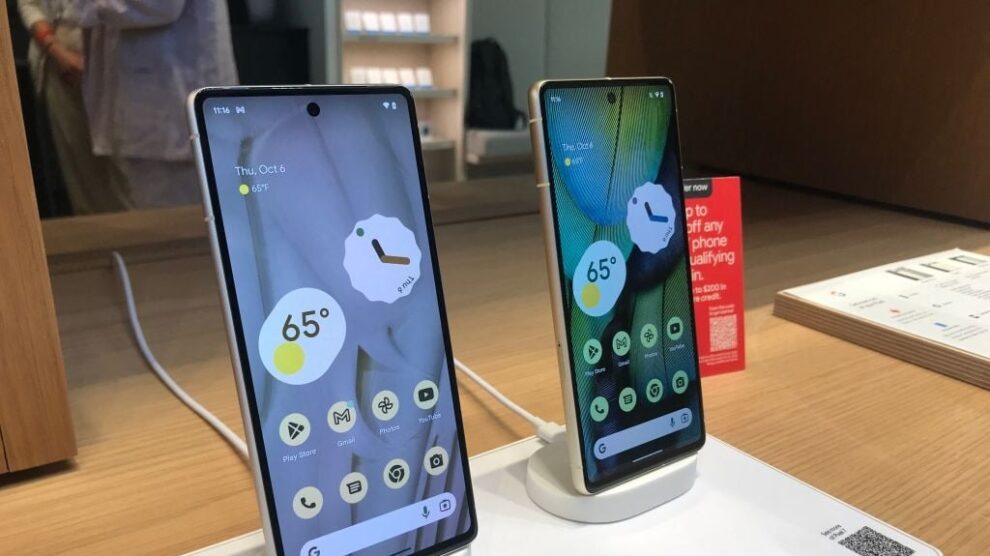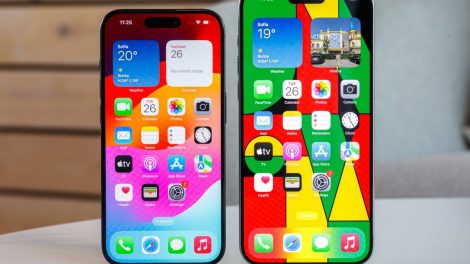Pixel 6, 7, and Fold Get Two Extra Years of OS UpgradesPixel 6, 7, and Fold Get Two Extra Years of OS Upgrades, and Pixel Fold series has sparked significant conversation among tech enthusiasts and smartphone users. By adding two additional years of OS upgrades, these devices now set a new benchmark in long-term support, challenging industry norms. This decision not only highlights Google’s commitment to extending the lifecycle of its devices but also reshapes expectations for Android users who have historically faced limited software support compared to other platforms.

This pivotal move is aimed at ensuring users benefit from enhanced device longevity, continued access to new features, and up-to-date security measures. As a result, Pixel owners can anticipate extended use of their devices without the constant concern of obsolescence. It also provides insight into Google’s broader strategy for maintaining its competitive edge in the smartphone market, where longevity and sustainability are increasingly critical.
Breaking Down the Extended Support
With this announcement, Google has pledged a total of five years of operating system updates for the Pixel 6, Pixel 7, and Pixel Fold series. This is a significant leap from the standard three years of updates that many Android manufacturers currently offer. The extended support ensures users will receive not only security patches but also access to the latest Android versions, enabling them to experience cutting-edge features, improved performance, and new functionality for a longer period.
This decision aligns Google with industry leaders who prioritize long-term device support. Apple, for instance, has long been a frontrunner in providing extended software updates for its devices, often supporting iPhones for up to seven years. Google’s move signals its intention to close this gap, offering Android users an experience that rivals the reliability and longevity Apple users have come to expect.
| Device | Original Support Period | Extended Support Period | Total Years of Updates |
|---|---|---|---|
| Pixel 6 Series | 3 years | 2 additional years | 5 years |
| Pixel 7 Series | 3 years | 2 additional years | 5 years |
| Pixel Fold Series | 3 years | 2 additional years | 5 years |
The Impact on Pixel Users
For Pixel owners, this announcement is a game-changer. It means a longer lifecycle for devices that are already celebrated for their seamless integration with Google’s ecosystem. With five years of OS updates, users of the Pixel 6, 7, and Fold can enjoy a prolonged period of smooth operation, cutting-edge features, and optimal performance.
This extended support also has practical implications for consumers who value sustainability and cost efficiency. By increasing the longevity of its devices, Google helps users reduce electronic waste while maximizing the value of their investment. For users who might otherwise upgrade every few years, the added support provides reassurance that their current devices will remain relevant and capable for a longer time.
Beyond individual users, this decision has implications for enterprise customers and IT professionals who prioritize device reliability and security in professional settings. Longer support windows mean reduced costs for device replacement and an extended period of assured security compliance, making Pixel devices more attractive in corporate environments.
Addressing Android’s Historic Challenges
Historically, Android has struggled with fragmentation and shorter support lifecycles compared to its competitors. Many Android devices are abandoned after just two or three years of updates, leaving users with outdated software and heightened security risks. This has been a persistent criticism of the Android ecosystem, contributing to the perception that iOS devices offer greater long-term value.
Google’s decision to extend support for its Pixel lineup directly addresses this issue, signaling a broader commitment to reducing fragmentation and providing users with a more consistent experience. By leading the charge, Google sets an example for other Android manufacturers, potentially raising the standard across the industry.
The move is also reflective of growing consumer demand for sustainability and extended device longevity. In an era where technology evolves rapidly, users are increasingly aware of the environmental impact of frequent upgrades and expect manufacturers to prioritize durability and long-term value. Google’s decision positions the Pixel lineup as a forward-thinking choice for environmentally conscious consumers.
The Role of Software Updates in Device Longevity
Operating system updates play a pivotal role in extending the life of a smartphone. They ensure devices remain compatible with evolving technologies, introduce new features that enhance usability, and provide critical security patches to protect against emerging threats. Without regular updates, even high-end devices can quickly become obsolete, unable to support new apps or meet the demands of modern users.
For the Pixel 6, 7, and Fold series, the additional two years of updates mean users can enjoy improved features like advanced AI integration, enhanced camera capabilities, and refined user interfaces for longer. This extended support also underscores the importance of software as a driving force in the smartphone experience, often outweighing the importance of hardware advancements.
What This Means for the Industry
Google’s decision to extend OS support for the Pixel series has significant implications for the broader smartphone industry. By setting a new standard for Android devices, Google challenges other manufacturers to rethink their approach to software support. Brands like Samsung, OnePlus, and Xiaomi may face pressure to extend their own update policies, particularly as consumers become more vocal about the importance of device longevity.
This shift also has potential ripple effects for app developers and the Android ecosystem as a whole. With more devices running the latest versions of Android for longer periods, developers can streamline their efforts, focusing on optimizing apps for newer platforms rather than supporting outdated software. This creates a more cohesive and efficient ecosystem that benefits both users and developers.
The Road Ahead
As Google rolls out this extended support policy, it will be crucial to observe how it impacts consumer behavior and industry practices. Will longer update windows encourage users to stick with their devices for longer periods, or will the allure of new hardware innovations still drive frequent upgrades? And how will competing manufacturers respond to this shift in the Android landscape?
For Pixel users, the benefits are clear. The extended support ensures their devices will remain competitive, secure, and feature-rich for years to come, providing a compelling reason to invest in Google’s hardware. For the industry, the move represents a turning point, highlighting the growing importance of software longevity in the smartphone market.
Ultimately, the decision to extend OS updates for the Pixel 6, 7, and Fold series reflects a broader evolution in consumer expectations and industry priorities. As sustainability, security, and long-term value take center stage, Google’s commitment to extended support sets a powerful precedent, shaping the future of smartphones and the Android ecosystem.










Add Comment